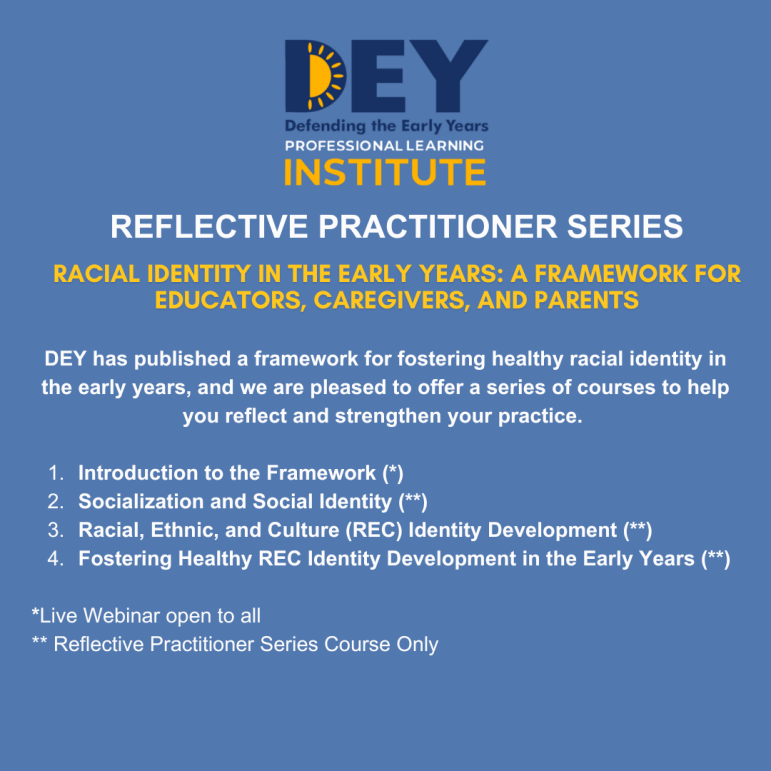
DEY invites you to learn about our new framework, Fostering Healthy Identity in the Early Years: Affirming Race, Culture, and Identity. Now more than ever, we, as early childhood educators and caregivers, must recognize our unique ability to support young children in developing a positive racial identity. In addition to supporting a young child’s physical, cognitive, language, and social/emotional development, early childhood teachers must support healthy identity development. Positive racial identity development is crucial to ensuring all children have the self-confidence required for leading healthy, fulfilling lives.
In the second installment of our Reflective Practitioner Series, DEY Executive Director Denisha Jones will provide a framework for deepening your practices to support young children in navigating racial socialization. Despite the attempts by a vocal minority to silence diverse voices and prevent young children from learning about racial justice, we at DEY are committed to preparing young children to dismantle white supremacy. We believe young children are ready and able to resist accepting racism and all forms of oppression if we give them the tools to make sense of the world around them.
This course begins with an introductory video and webinar, which are open to everyone. It then transitions into a series of three mini-courses for monthly subscribers. The mini-courses include live Zoom workshops, reflective workbooks, and resources to support you on this journey. Denisha has organized the course into the following topics:
- Introduction to the Framework (*)
- Socialization and Social Identity (**)
- Racial, Ethnic, and Culture (REC) Identity Development (**)
- Fostering Healthy REC Identity Development in the Early Years (**)
*Live Webinar open to all
** Reflective Practitioner Series Course Only
If we are to educate young people to build an anti-bias and anti-racist world, we must begin by fostering healthy racial, ethnic, and cultural identity in the early years. We can no longer hold on to the misconception that children are too young for this vital work. Instead, we must recognize how racial identity development can be healthy and unhealthy and accept our role in ensuring that all children develop a healthy racial identity.
